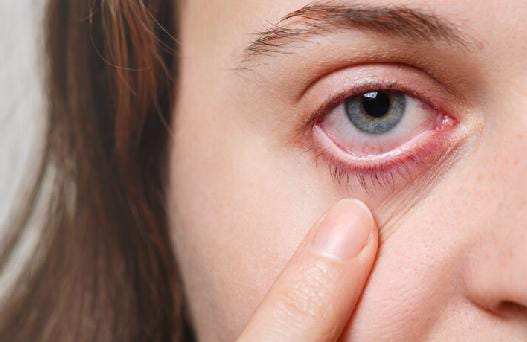
How to Alleviate Dry Eye Syndrome Naturally
Do you often experience dry, itchy, or irritated eyes? If so, you may have dry eye syndrome. Dry eye syndrome commonly affects millions worldwide, including many Australians. Various factors, such as environmental conditions, aging, and certain medications, can cause it.
Dry eye syndrome is a common condition that affects millions of people worldwide. It occurs when the eyes cannot produce enough tears or when the tears evaporate too quickly. This can lead to various symptoms, including dryness, irritation, redness, and blurred vision.
An optometrist is an eye care professional who can diagnose and treat dry eye syndrome. They can also provide advice on how to alleviate symptoms naturally.
What are the symptoms of dry eye syndrome?
The most common symptoms of dry eye syndrome include:
- Dryness
- Irritation
- Redness
- Blurred vision
- Sandy or gritty feeling in the eyes
- Sensitivity to light
- Burning or stinging sensation in the eyes
- Watery eyes (paradoxically)
What are the causes of dry eye syndrome?
Many factors can contribute to dry eye syndrome, including:
- Environmental conditions, such as dry air, wind, and smoke
- Aging
- Certain medications, such as antihistamines, antidepressants, and diuretics
- Medical conditions such as rheumatoid arthritis, lupus, and thyroid disease
- Contact lens wear
- Laser eye surgery
- Pregnancy and breastfeeding
How to alleviate dry eye syndrome naturally
There are several things you can do to alleviate dry eye syndrome naturally, including:
- Blink more often. Blinking helps spread tears over the eye’s surface and keeps them moist.
- Avoid dry environments. If you live in a dry climate, you can use a humidifier to add moisture to your home or office air. You should also avoid spending too much time in smoky or windy environments.
- Take breaks from screens. Computer screens and other digital devices can emit blue light, drying out the eyes. Try to take breaks from screens every 20 minutes or so to rest your eyes.
- Apply warm compresses to your eyes. Warm compresses can help loosen up any tear duct blockages and improve tear production.
- Use artificial tears. Artificial tears can help to lubricate the eyes and relieve symptoms of dryness.
- Eat a healthy diet. A diet rich in omega-3 fatty acids, vitamin A, and vitamin D can help to improve eye health and reduce the risk of dry eye syndrome.
- Get enough sleep. When you don’t sleep enough, your eyes can dry and irritate.
Specific natural remedies for dry eye syndrome
Here are some specific natural remedies that may help to alleviate dry eye syndrome:
- Coconut oil: Coconut oil has antibacterial and anti-inflammatory properties. It can also help create a protective layer over the eye’s surface, which can help reduce tear evaporation. To use coconut oil for dry eyes, simply apply a small amount to a clean cotton ball and gently massage it onto your eyelids.
- Aloe vera: Aloe vera has anti-inflammatory and cooling properties. It can help to soothe and moisturize the eyes. To use aloe vera for dry eyes, apply a few drops of pure aloe vera gel to each eye.
- Chamomile: Chamomile has anti-inflammatory and antioxidant properties. It can help to soothe and protect the eyes. To use chamomile for dry eyes, steep a chamomile tea bag in hot water for a few minutes. Then, let the tea bag cool slightly and place it over your closed eyes for a few minutes.
- Eyebright: Eyebright is a herb used for centuries to treat eye problems. It has anti-inflammatory and astringent properties, which can help to reduce swelling and redness in the eyes. For dry eyes, steep a teaspoon of dried eyebright in hot water for a few minutes. Then, apply the tea to your eyes using a cotton ball.
Conclusion
Dry eye syndrome is a common condition that can cause various uncomfortable symptoms. However, you can alleviate the symptoms naturally, such as blinking more often, avoiding dry environments, taking breaks from screens, applying warm compresses, using artificial tears, and eating a healthy diet. You may also want to try specific natural remedies, such as coconut oil, aloe vera, chamomile, and eyebright.
Talk to your optometrist if you have any concerns about dry eye syndrome. They can help you determine the underlying cause of your symptoms and develop a treatment plan for you.







